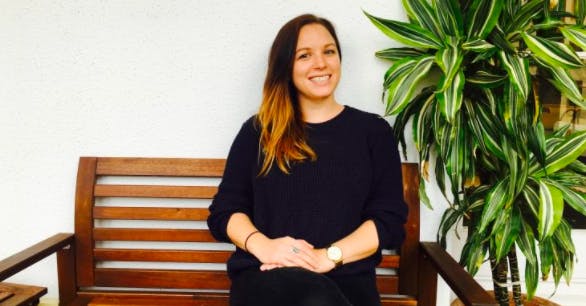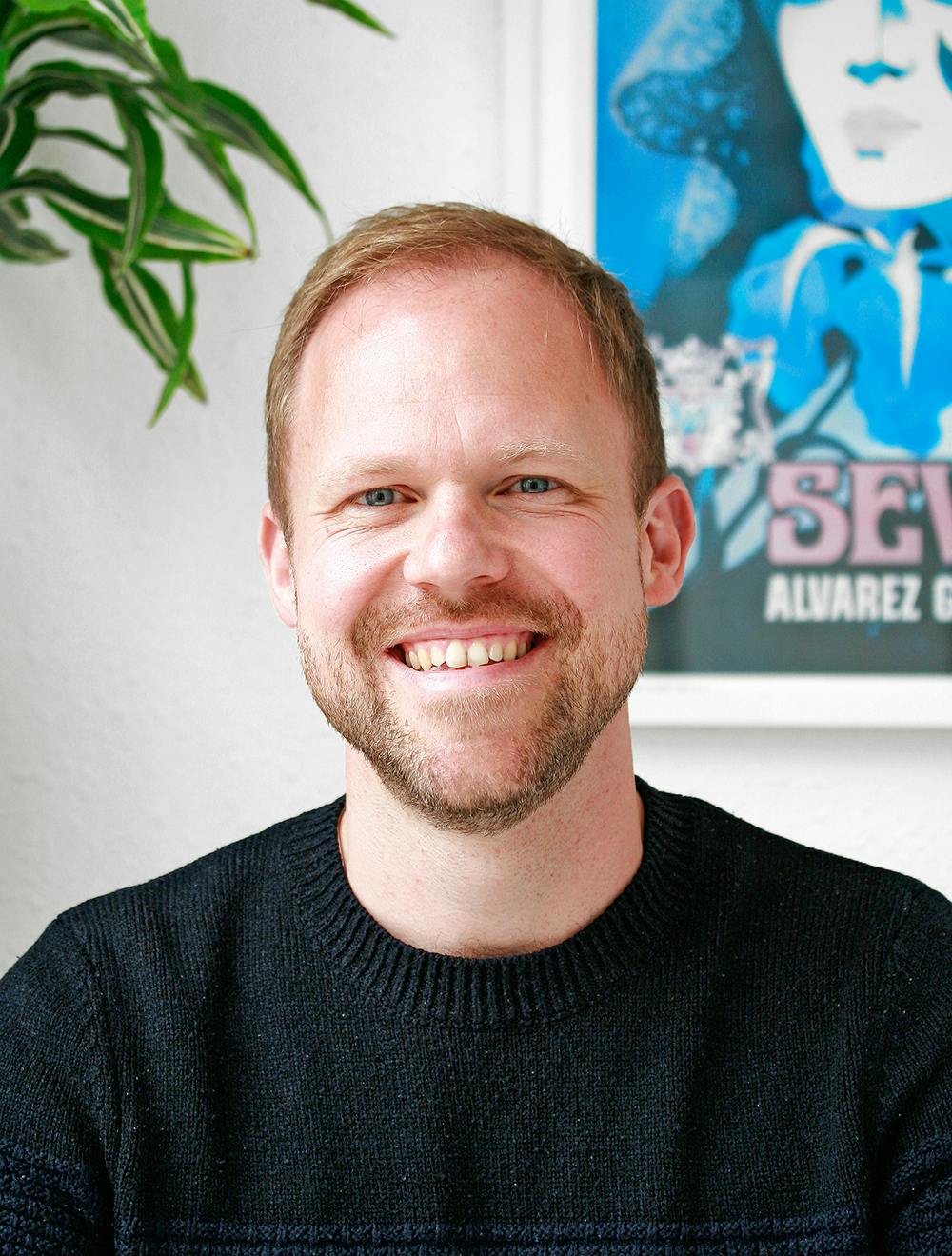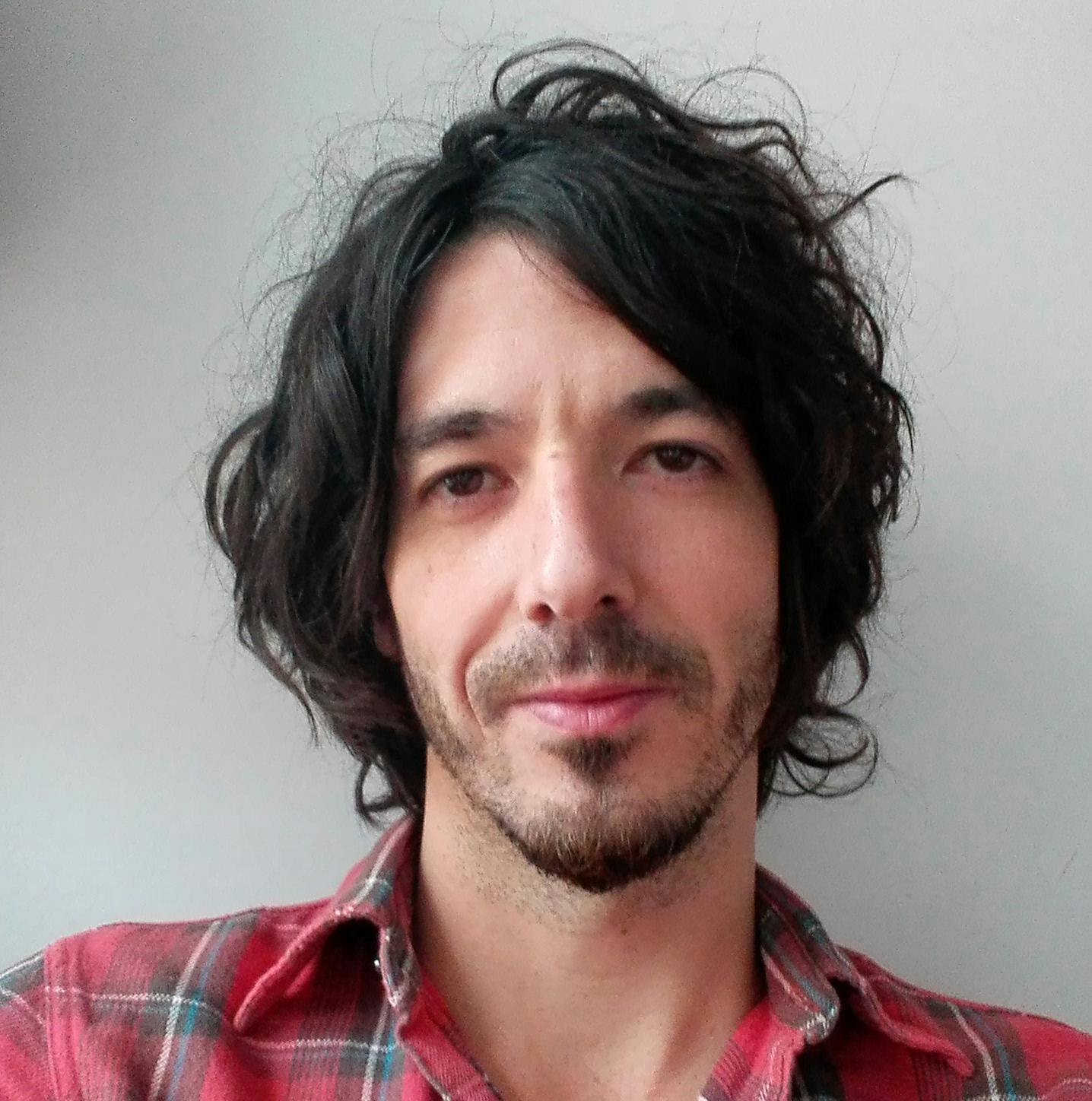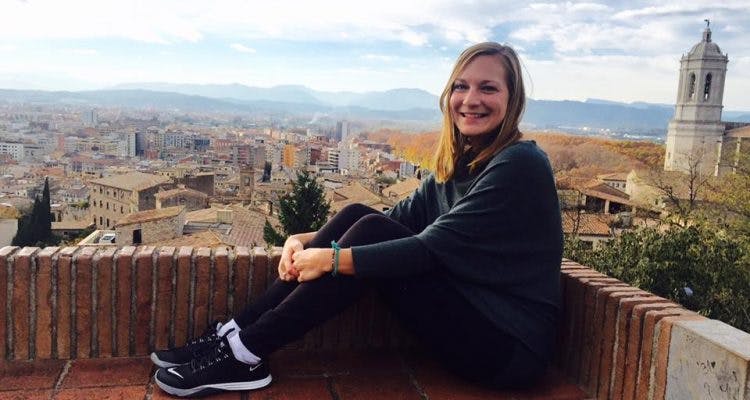Going from TEFL teaching to primary teaching

There’s a common perception of TEFL as career-limiting, but in fact nothing could be further from the truth! Last week we sat down with Claire to find out about her career path from TEFL teacher to primary teacher, and what she’s planning to do next.
How did you first get into TEFL teaching?
I had graduated from the University of Edinburh with a degree in History and Politics. There’s no clear career path from there – I’d been accepted on to a Masters but I didn’t have funding so I couldn’t afford to do that. I’d done a TEFL course and I was working in London and it was really grey and rainy and I thought, there must be more to life than this! So I moved to Barcelona on a whim, really. When I arrived a friend of a friend put me in touch with a company called English Summer, which organises summer camps. I spent the summer working out at Puigcerda, which was lovely!
How long did you work as a TEFL teacher?
In total, around 3 years. I decided to go back home to train as a primary teacher. Lots of my TEFL work was at summer camps, and there was more to the role than just teaching English. There was the pastoral side of things, and organising sports and activities and I really enjoyed the time I spent doing that. I also enjoyed the time I spent with the younger students, and thought I’d like to have a go at teaching across all the subjects. Although English teaching is fun, it can get quite repetitive, and I thought it’d be interesting to broaden my teaching skills.
Where did you do your teacher training?
I went to London and trained at the Institute of Education, which is now part of UCL. I did my NQT year in London too – at the time you had to do your Newly Qualified Teacher year in England, but you can now do it abroad too. My TEFL experience was really good when I was applying for the course. I already had classroom experience and I could talk about what that was like. All teaching training courses require you to have some classroom experience so TEFL ticked that box. It also meant that when I started my teaching practice I felt much more confident standing up in front of the class because I knew what to expect – it wasn’t as challenging as it might have been. Obviously there’s lots of new information to take on but I was prepared in a lot of respects by my years as a TEFL teacher.
And what did you do once you were a fully qualified teacher?
Once I’d done my teacher training I decided to move back to Barcelona, and worked at the British School of Barcelona for three and a half years now. International schools are quite different from schools in the UK. There is a lot more freedom to teach what you want to teach, you don’t have to stick to the British curriculum. You can take what you want from it and interpret it in your own way, which allows you to be more creative than teachers in the UK.
What are the pros and cons of working in an international school?
There are children from all over the world which is cool – you’re working with children who are speaking two, three and sometimes even four languages, which is very inspirational! You meet lots of interesting people from all over the place, both the other members of staff and the parents, which gives you a very international outlook. The only downside was a lack of resources in terms of what’s available. In the UK there are lots of resources you can get from outside the school, like speakers coming in to talk to the kids, workshops they can take part in and educational day trips which are all in English, obviously. To get those types of resources here is more difficult and expensive.
What are you planning to do next?
Well, I’ve recently returned from travelling – I was in South America for three months, which was amazing – and I’m currently applying for various different jobs related to education and outreach. I’d like to stay within the education sector, using my knowledge and experiences from teaching to work with a broader audience.
Popular Posts
Gap year Spanish language immersion: what to expect?

Golden gap years in Europe: what are the benefits?

The best countries for a gap year in Europe

Gap year in Barcelona? Here's your pre-travel checklist for 2026

Subscribe To Our Mailing List!
Receive course updates, graduate reviews, exclusive discounts and more



